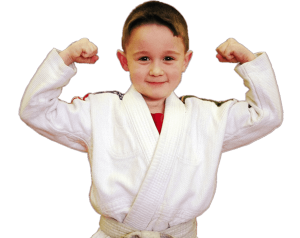 Here are the senses people, especially children and teens, need in order to nourish their self-esteem:
Here are the senses people, especially children and teens, need in order to nourish their self-esteem:
A Sense of Security
Pediatricians reason that a child secure in her ability to face the future, near-term and long-term, has the necessary foundation for high self-esteem. A child, teen, even an adult, that practices a martial art learns new skills. When they see their own progress, that powers belief in one’s own ability to handle new challenges.
A Sense of Belonging
It starts in the family, but Pediatricians say kids need another group to belong to as well. Connecting with other people at school, church, or some organization where members share a common interest further shores up a sense that they belong. In martial arts, people of all ages connect over their shared goal of improving their health and well-being…and having fun while doing it. It’s easy to make friends this way, and looking around in class one sees it happening.
A Sense of Purpose
Purpose channels energy in a meaningful direction. Most importantly, it’s got to be a direction and purpose that the child cares about, rather than one someone else forces upon them. When forced, we resent. And with no purpose, one becomes bored and aimless, which pediatricians claim can lead to trouble.
Martial arts has a road of achievement built into it. A child or teen that starts down this path can see measurable targets to aim for in their progress. Each belt earned means one has been tested and measured by someone else, an experienced instructor. Martial arts creates a testing system that most kids want to take. That’s a sure sign of self-esteem, when one happily looks forward to another chance to test their progress.
A Sense of Personal Competence and Pride
Who doesn’t want one more place in the world where we can hear the words, “Good job”? Instructors float through the class, watching student technique. Hard work pays off with these verbal pats on the back. It feels good to know someone’s judging you, and approving.
A Sense of Trust
A children need to trust their parents and themselves. Martial artists consider integrity as part of their black belt lifestyle. Students help each other in class, and that gives them more opportunities to trust, and to be trusted.
A Sense of Responsibility
Advancing up through the belt ranks means more responsibility:
- responsible for welcoming new students,
- responsible for assisting classmates with their technique, and motivating them through physically demanding drills,
- responsible for setting a tone and culture of humility, respect, and positivity.
A Sense of Contribution
Instructors have students aid in class instruction by demonstrating techniques in front of their peers. Contributing to class progress builds self-esteem.
A Sense of Making Real Choices and Real Decisions
Allowing the child or teen to decide to stay with their martial arts training gives them practice to make other decisions about which direction to take their life.
A Sense of Self-Discipline and Self-Control
The American Academy of Pediatricians say this one is critical. The good news? Martial arts hits this one on the bullseye.
The doctors argue that children need expectations, guidelines, and opportunities to test themselves. This is the foundation of martial arts classes.
A Sense of Encouragement, Support, and Reward
This comes from instructors and classmates. Lots of encouragement, coaching, and of course rewards ranging from the verbal, “Nice job” to the tangible, a new belt earned.
A Sense of Accepting Mistakes and Failure
Look, some aspects of martial arts can be difficult. And that’s a good thing. It makes the progress all the sweeter. But along the way, students stumble. And this also is good. It’s an opportunity to learn how to face challenge in the eye, and keep applying effort when something doesn’t come easy.
Martial arts instructors pride themselves on corrective coaching until a student finally masters a technique.
A Sense of Family Self-Esteem
Last but not least, youth self-esteem begins within the family. Affection, pride, and the self-esteem of family members all impact a child’s self-esteem development. Imagine the momentum and lift a family would experience if multiple members all enjoyed the above benefits from martial arts.
“My best friend is the one who brings out the best in me.”
—Henry Ford
Original post by Brian Carmody at ‘A Krav Maga Life’
We’ve seen some amazing changes in our own students. Check out these other posts with some junior success stories from the Ilyokwan Black Belt Academy
Would you like to see your child achieve this same level of success? Give us a month and we we GUARANTEE you’ll see a change in your childs attitude, confidence, discipline and respect. Click the button below to register for a 30 Days FREE guest membership
